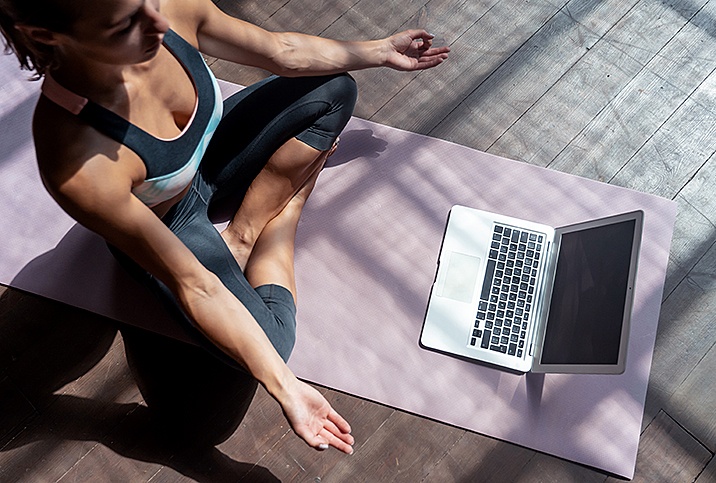Stress Management Techniques for Depression

Whether it's stress from work, fighting with your partner or simply the everyday grind of being a productive adult, life's constant pressures are tough for everyone to handle.
However, when we have depression, these tasks go from tough to impossible. Thankfully, there are specific stress management techniques that can have many positive effects on depression.
Understand how stress exacerbates depression
Stress is a catalyst for depression. People who don't have depression still feel stress weighing down on them, but while it's still hard to handle, it is manageable.
However, when you have depression, simple stresses make you feel like you don't have what it takes. For instance, a fight with your partner might feel like evidence you can't succeed in a relationship. What's worse is depression might make you believe this fight will be the reason your partner leaves. Depression can also cause irritability and cause you to be less patient.
Clinically speaking, stress can exacerbate feelings of hopelessness, increase fatigue and potentially induce panic attacks, which can bring on new symptoms of depression such as anxiety. Ultimately, feeling less stress makes it easier to manage depression.
Control your daily routine
Controlling your daily routine might seem like what you're already doing, but think about how many times you find that life has once again turned things around on you. And that tiny issue after a long stressful day was just enough to trigger depression.
To give you an example, say the traffic on the way home makes you feel trapped and miserable and you can't stand this same old route for one more second. Try altering your route home. Transform a mundane journey from work into an exciting discovery of new streets, unfamiliar territories and perhaps even a faster trip. Don't worry, as long as your GPS knows where you're going, it'll untangle a route no matter what you throw at it.
Or instead of taking the dog for the same walk every day, take a detour and walk through the park. Take your shoes off, stand in the grass and feel the cool earth between your toes while your best friend eyes you in a puzzled way.
For all the changes you may decide to make, keep one habit the same: a regular bedtime and wake-up schedule. You're going to need a good night's sleep.
Simply altering your daily routine in a few small ways gives you opportunities to experience new things and stimulate your senses in a positive way. These new experiences will also give you something to look forward to each day. Now start making changes to your diet and exercise, and practice self-care and you'll find your stress is reduced and that will help relieve symptoms of depression.
Avoid toxic relationships
If you have depression, avoiding toxic people needs to become a primary priority in your life. If you have a co-worker or friend who doesn't understand that your day is focused on improving your mental health, then it could be time to limit that toxic connection until your depression symptoms are under control.
Avoiding people who bring additional stress into our lives helps us focus on managing our own responsibilities. Remember what the flight attendants always say: "Please place the mask over your own mouth and nose before assisting others." You have enough on your plate without solving someone else's problems.
Limiting contact with toxic friends and co-workers can help reduce stress and make you feel more confident, and that increases peace of mind.
Practice breath control
Feeling in control is important for both depression and stress. When we feel in control of a situation, we take power away from stress. We take ownership so we can change the outcome of the situation, and our depression is less likely to be triggered.
Sometimes we need to trick our mind into thinking we really are in control, just so we can think clearly and actually regain control of the situation. One way to trick ourselves is to practice breathing techniques to slow our heart rate and induce a state of relaxation. A simple, mindful breathing exercise that focuses on two seconds of inhalation, two seconds of holding your breath and two seconds to exhale is all you might need to regain control when you feel overwhelmed.
Once you're in a more relaxed state, you'll feel like you can handle the cause of your stress and prevent hopelessness from creeping in and triggering depression.
Meditate for stress relief
When you think of meditation, you might conjure up the vision of sitting in an incense-filled room with a chanting guru and everybody repeating the word, "Om." And, yes, that's meditation, but meditation can work anywhere: at work in front of your computer, outside the conference room before your presentation or on a bus next to a person talking your ear off.
No matter the setting, taking a few minutes to take control of your thoughts will help you tackle your next task and refocus your feelings of hopelessness, stress, anxiety or self-deprecation into thoughts of confidence, relaxation and peace.
Meditation may be a trick of the mind, but the sense of control can reduce stress and get you in a better frame of mind to take on your day.


















